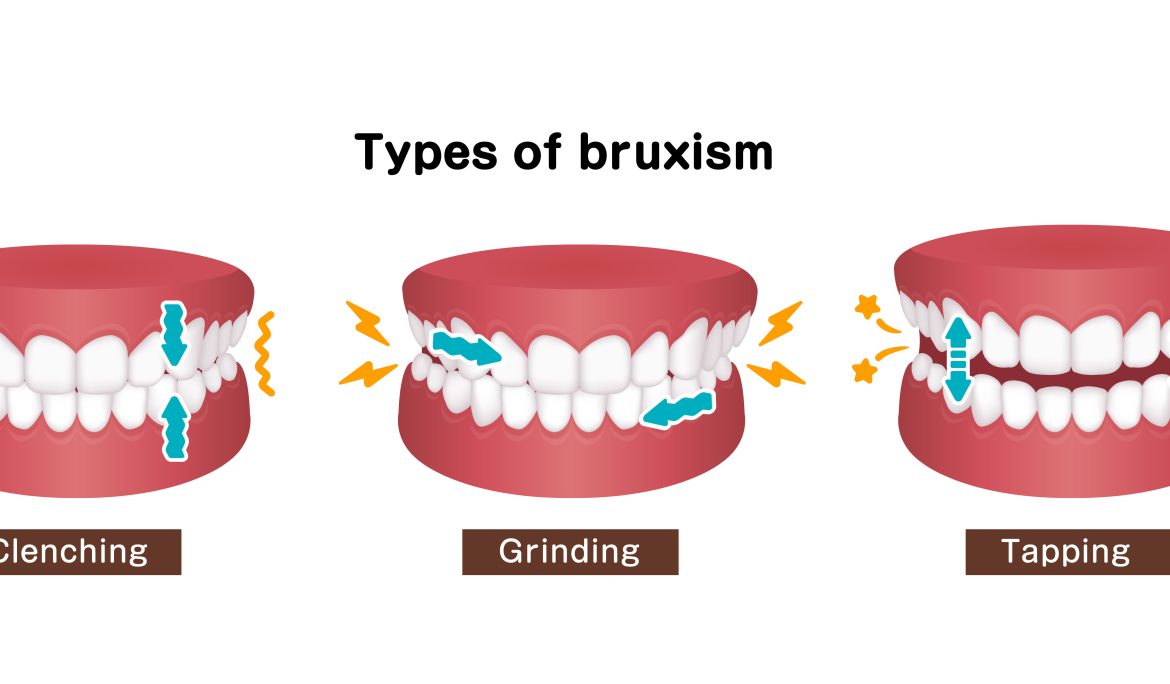What is teeth grinding? Teeth grinding also known as bruxism is a condition within which you grind, grate or clench your teeth.
How do you know you have it? If you have it, you will unconsciously clench your teeth either while awake (awake bruxism) or clench or grind them whilst sleep (sleep bruxism). Sleep bruxism is considered as a sleep-related movement disorder, why do we say so? There is a positive correlation between griding teeth during sleep and different sleep disorders for example snoring and pauses in respiration (sleep apnea).
Sometimes bruxism might not need treatment. However, in some people, the condition is severe enough to steer to jaw disorders, headaches, broken teeth etc. Because of its subconscious ‘lowkey’ nature, you may be unaware of it till complications develop.
It is paramount to understand the signs and symptoms of bruxism and to seek regular dental care if you notice them.
Teeth grinding or clenching, which can be loud enough to awake your sleep partner
Teeth that are flattened, fractured, broken or loose
Worn tooth enamel, exposing deeper layers of your tooth magnified tooth pain or sensitivity
Tired or tight jaw muscles, or a bolted jaw that won’t open or shut fully
Jaw, neck or face pain
What are the causes of bruxism?
Doctors don’t fully perceive what causes bruxism, however it ranges between physical, psychological and genetic factors.
Awake bruxism is associated with emotions corresponding to anxiety, stress, anger, frustration or tension. Or it may be a cope strategy or a habit throughout deep concentration.
These factors increase your risk of bruxism:
Stress: magnified anxiety or stress will result in teeth grinding.
Age: action is common in young children, however it always goes away by adulthood.
Temperament: Having a personality type that’s aggressive, competitive or active can increase your risk of bruxism.
Medications and different substances: some medical specialty medications, corresponding to sure antidepressants. Smoking tobacco, drinking caffeinated beverages or alcohol.
Sleep bruxism tends to occur in families: different members of your family conjointly could have bruxism or a history of it.
Different disorders: bruxism is related to some mental state and medical disorders, like Parkinson’ disease, dementia, reflux disorder (GERD), epilepsy, night terrors, sleep-related disorders such as sleep apnea, and attention-deficit/hyperactivity disorder (ADHD).
What are some of the complications of bruxism?
In most cases, bruxism doesn’t cause serious complications. however severe bruxism may lead to:
harm to your teeth, restorations, crowns or jaw
Tension-type headaches
Severe facial or jaw pain
Disorders that occur within the temporomandibular joints (TMJs), situated just before of your ears, which can sound like clicking once you open and shut your mouth designation throughout regular dental exams, your tooth doctor seemingly can check for signs of bruxism. analysis
How is bruxism treated?
In many cases, treatment isn’t necessary. several children outgrow action while not treatment, and plenty of adults don’t grind or clench their teeth badly enough to require therapy.
Dental approaches: If you or your kid has bruxism, we may counsel ways in which to preserve or improve your teeth. though these ways may prevent or correct the damage to your teeth, they will not stop the bruxism but will reduce the damage done:
Splints and mouth guards. These are designed to keep teeth separated to avoid the harm caused by clenching and grinding.
Dental correction. In severe cases — once tooth wear to the point of sensitivity or inability to chew properly— we may have to reshape the chewing surfaces of your teeth or use crowns to repair the damage.
Stress or anxiety management.
Behavior modification. Once you discover that you just have bruxism, you is also able to change the behavior by active correct mouth and jaw position.
Medications In general, medications aren’t terribly effective for treatment of action, and a lot of analysis is required to see their effectiveness. samples of medications that will be used for bruxism include:
Muscle relaxants. In some cases, your doctor may counsel taking a relaxant before bedtime, for a brief amount of time. botulinum toxin injections.
Injections of Botox, a sort of Clostridium botulinum toxin, may facilitate some individuals with severe bruxism who don’t reply to different treatments.
Medication for anxiety or stress. Your doctor may recommend short use of antidepressants or anti-anxiety medications to assist you wear down stress or different emotional problems that will be inflicting your bruxism.















